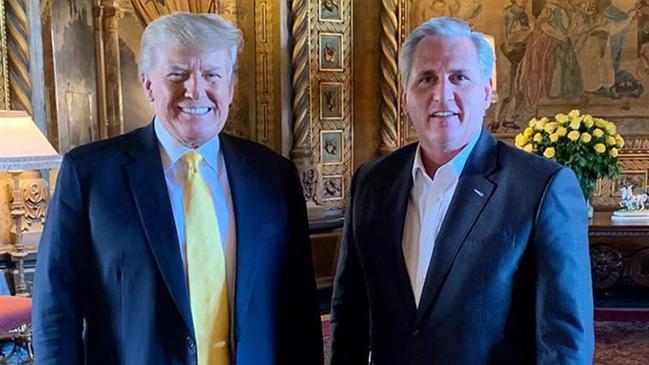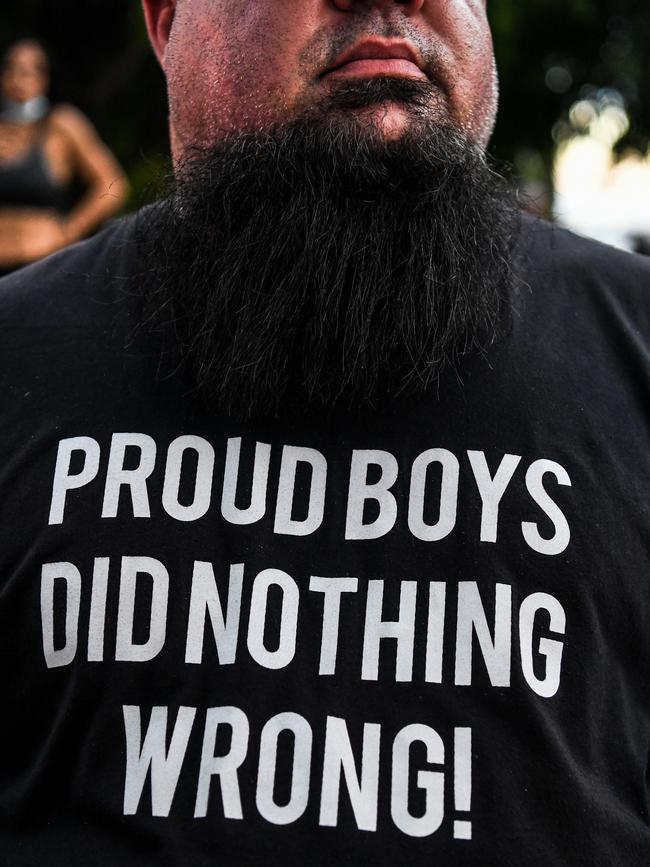Democrats are too keen to nail Trump for a riot. They should have zeroed in on the coup
On the face of it, the Democrats’ purely emotional case against Donald Trump is weak. They should have zeroed in on intriguing revelations of a takeover plot.

The impeachment trial of Donald Trump opens in just over a week, but Republican ardour to convict the former president has cooled in the face of the loyalty he still inspires among the party base. It is already too late to make the most of the visceral fear and anger felt by senators during the storming of the Capitol.
Yet is it also too soon to bring Trump to book? Several troubling allegations have come to light since the January 6 riot on Capitol Hill and have yet to be properly investigated.
The Democrats may have made a hash of the Senate trial by plunging headlong into putting Trump in the dock, for there are still many unanswered questions about the events of that day. Was there an attempted coup?
Trump has been charged with “incitement of insurrection”. Democratic congressmen and women want to present fresh video footage of the Capitol police getting battered by the mob, as well as searing witness testimony from injured officers. How much they will be allowed to show has yet to be determined. On the face of it, though, the purely emotional case against Trump is weak.
Although Trump egged on his pumped-up ("We fight like hell, and if you don’t fight like hell, you’re not going to have a country any more"), he also told them to “walk” to the Capitol to “peacefully and patriotically make your voices heard” – he did not order them to invade the building. It is hard to see this forming the basis of a conviction on anything more than a partisan basis.

Mick Mulvaney, Trump’s former White House chief of staff, who has made plain his revulsion at the rioting, thinks the charge lets Trump off the hook. “I don’t understand why the Democrats chose to go for that one article of impeachment when more information is coming out,” he said. “You would hope that impeachment was about getting the facts. It was a mistake for Democrats to make it a political fight rather than a legal fight.”
A delay might have given the FBI and other agencies time to build a case that has otherwise appeared only in fragmentary media reports – making the allegations all too easily dismissed by Trump supporters as a “hoax”.
Among the intriguing revelations was a story in The New York Times that Trump was allegedly plotting to install a new acting Attorney-General, Jeffrey Clark, just days before Congress was due to certify Joe Biden’s electoral college win on January 6. Clark, the acting head of the justice department’s civil division, was said to be willing to entertain Trump’s conspiracy theories about electoral fraud. But when Jeffrey Rosen, who had been acting Attorney-General since Christmas Eve, was informed of the plan to replace him, he organised a meeting of top officials who agreed to resign if Trump carried out his threat.
True or false? Clark disputed the accuracy of the report, but would not be drawn into specifics. In the event, Trump backed off sacking Rosen because another explosive story broke: news of the telephone call in which he had leant on Brad Raffensperger, the secretary of state for Georgia, to “find” him the extra 11,780 votes that would swing the result there in his favour.
The allegations about Clark recall an earlier report by the well-regarded online publication Axios that Trump had intended to install another loyalist, Kash Patel, as acting deputy director of the CIA – with a possible view to replacing the independent-minded Gina Haspel as director. Haspel, too, had threatened to resign and nothing was done.
If Trump had been plotting a purge, he appears to have lacked the bravado, or the plans were never that serious. Yet less than a week after the election, in early November, he had fired Mark Esper as Defence Secretary for being critical of the use of troops during the Black Lives Matter protest in the capital last summer – and appointed Christopher Miller, a former civilian head of special operations, as acting Pentagon chief.
Had all these plans gone through, Trump would have had new personnel at the top of the defence, intelligence and justice departments at the same time as he was being urged to impose martial law by visitors to the White House, including his former national security adviser, General Michael Flynn.

Leon Panetta, the Defence Secretary and CIA chief under Barack Obama, said: “The concern is that he was putting individuals in positions of power where he could manipulate them rather than [let them] exercise their constitutional duty. The deeper you dig, the more evidence there is that this was not just coincidence.”
Panetta fears the assault on Congress could have been a prelude to Trump invoking special powers under the Insurrection Act, had politicians been hurt. “There is no doubt our democracy was in tremendous jeopardy. It was clear to me our country had been attacked by terrorism. I don’t think we should kid ourselves about how serious this is.”
Panetta is concerned Trump’s trial is happening too soon to establish the facts. “There needs to be a 9/11-style national commission to determine how many of these events were the results of planning or a conspiracy and how many happened by themselves,” he said.
There is another oddity – though by no means evidence of a plot. Flynn’s brother, Lieutenant General Charles Flynn, the army’s deputy chief of staff for operations, was involved in a tense conference call about whether to deploy the National Guard at the Capitol. Yet the army told The Washington Post he was not part of this discussion among the top brass. “He was not in any of the meetings!” a spokesman insisted – in capital letters – in an email to the newspaper. Only later did Charles Flynn admit he was present for a brief period. He went on to “categorically deny” that his relationship with his brother would “somehow influence my action”.
In the top-brass discussion, concern was expressed about using troops against a civilian affray, though it is not clear who made the comments. After the Capitol was breached, an hour passed before the use of the National Guard was approved. By the time soldiers arrived, the rioting had subsided.
According to The New York Times, Trump “initially rebuffed and resisted requests” to mobilise the guard. His first tweet to the rioters – stating “we love you” but asking them to “go home” peacefully – appeared nearly two hours after the start of the melee. Was Trump waiting to see what transpired? If it was an intended coup, it appears to have been an organisational shambles, reliant more on happenstance than planning.
Evidence submitted by the FBI in court documents suggests some of the rioters were co-ordinating efforts. One army veteran associated with the Oath Keepers extremist group said on a two-way-radio app inside the Capitol: “We have about 30-40 of us. We are sticking together and sticking to the plan.”
The Wall Street Journal has assembled a remarkable video of another extremist group, the Proud Boys, liaising with each other at the forefront of the violence. But responsibility for these events cannot be laid directly at Trump’s door and may even exonerate him of inciting the violence, since their plans were laid before his speech to the crowd.
Trump had repeatedly claimed before the election that Democrats were “trying to steal” it and could only win by “rigging” the result. But the scale of Biden’s electoral college victory – by 306 votes to Trump’s 232 – doomed attempts to challenge his win in court. Did he resort to last-ditch measures on January 6? If so, the Democrats are a long way from proving their case.
Panetta told me his long experience in public life had taught him “ultimately, the truth does come out”. One police officer and four civilians died during the storming of the Capitol, while lawmakers feared for their lives. “When you have a mob take over the Capitol and … lives are lost, that’s a moment when you worry about total insurrection,” he said.
Yet in their eagerness to rush through Trump’s impeachment, the Democrats have turned the battle into a lopsided, partisan affair. They will find it every bit as difficult to join the dots of a conspiracy to overthrow the election as it was to prove collusion with Russia during the 2016 election.
An alternative remedy has been proposed to censure Trump, but this would have been more effective in the immediate aftermath of the riot. Unless more definitive evidence is forthcoming at next week’s trial, he has a ready-made slogan to hand: “Stop the witch-hunt.”

To join the conversation, please log in. Don't have an account? Register
Join the conversation, you are commenting as Logout